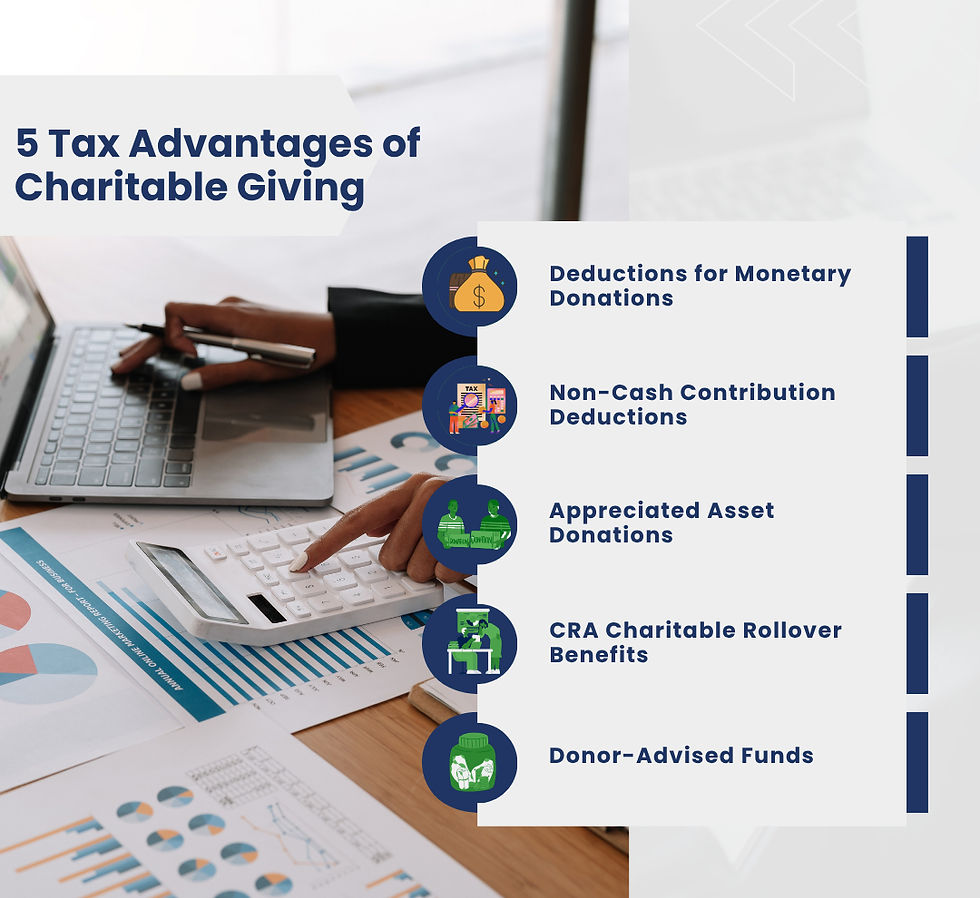Canadian Income Tax and CRA Deadlines You Need to Know
- Vijay Sindhu

- Sep 21, 2023
- 1 min read
Introduction:
Tax season can be a stressful time for many Canadians, but being well-prepared and staying informed about important dates and deadlines can make the process smoother and less daunting. The Canada Revenue Agency (CRA) has specific dates for various tax-related activities that you should keep in mind. In this blog, we'll outline the key dates you need to be aware of when it comes to Canadian income tax and CRA matters.
Personal tax Important dates
April 30: Individual Income Tax Return Filing Deadline
For most Canadians, the deadline to file your income tax return is April 30. This date applies to individuals who are not self-employed or have not received an extension. Filing on time ensures you avoid late-filing penalties and interest charges.
June 15: Self-Employed Income Tax Return Filing Deadline
If you're self-employed, the tax filing deadline is extended to June 15. However, if you owe taxes, it's essential to pay any balance owing by April 30 to avoid interest charges.
April 30: Tax Payment Deadline
Regardless of whether you're an employee or self-employed, any taxes owed must be paid by April 30 to avoid interest charges. Even if you file your return later, make sure you estimate your taxes accurately and pay them on time.
Estimated Quarterly Tax Payments: If you are self-employed or have significant investment income, it may be necessary to make quarterly tax payments. The due dates for these payments are typically in March, June, September, and December.
March 1: Deadline for RRSP Contributions
To claim a deduction for contributions to your Registered Retirement Savings Plan (RRSP) on the previous year's tax return, you must make these contributions by March 1. Maximizing your RRSP contributions can help reduce your tax liability.
End of February: T4 and T5 Slips
Employers and financial institutions are required to provide you with T4 (employment income) and T5 (investment income) slips by the end of February. These slips are essential for accurate tax filing.
Corporate Tax important dates
Corporate Tax Return (T2): Six Months After Fiscal Year-End
For most Canadian corporations, the deadline for filing the T2 Corporate Income Tax Return is six months after the fiscal year-end. If your corporation's fiscal year-end falls on December 31st, the tax return is due on June 30th.
It's crucial to be diligent in meeting this deadline to avoid penalties.
Corporate Annual Returns:
Corporations are required to file annual returns with their respective provincial or territorial business registries, depending on the jurisdiction in which they are registered. These deadlines can vary by province or territory.
Corporate Tax Payments:
While the filing deadline is six months after the fiscal year-end, any taxes owed must be paid within two months of the fiscal year-end. For a December 31st fiscal year-end, taxes must be paid by February 28th. Corporations can make estimated quarterly payments throughout the year to avoid interest charges on balances owing.
Corporate Fiscal Year-End:
Corporations can choose their fiscal year-end, but it must be consistent from year to year. It's important to select a fiscal year-end that aligns with your business's financial activities and goals.
GST/HST Returns: Quarterly or Annual
Depending on your business's size and revenue, you may be required to file your Goods and Services Tax/Harmonized Sales Tax (GST/HST) returns quarterly or annually. Ensure you meet your reporting and payment deadlines to avoid penalties.
Filing Extensions
If you can't meet the tax filing deadline, you can request an extension by contacting the CRA. Keep in mind that interest may still accrue on any taxes owed after the original deadline.
CRA Online Services
The CRA offers a range of online services to help you manage your tax affairs. From filing your return to checking your refund status, utilizing these services can simplify your tax obligations.
Conclusion:
Staying on top of these important dates and deadlines can help you navigate the Canadian income tax system and the CRA more efficiently. Remember that failure to meet these deadlines can result in penalties and interest charges, so it's crucial to be organized and prepared. If you have any questions or need assistance, don't hesitate to reach out to the CRA or consult with a tax professional. Being informed and proactive about your tax obligations can lead to a smoother and more financially secure future.







